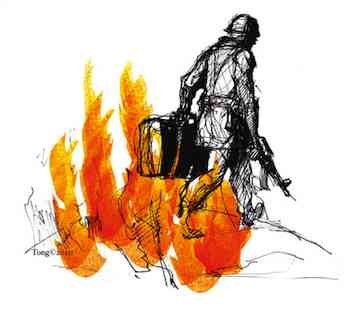- MENU
- HOME
- SEARCH
- WORLD
- MAIN
- AFRICA
- ASIA
- BALKANS
- EUROPE
- LATIN AMERICA
- MIDDLE EAST
- United Kingdom
- United States
- Argentina
- Australia
- Austria
- Benelux
- Brazil
- Canada
- China
- France
- Germany
- Greece
- Hungary
- India
- Indonesia
- Ireland
- Israel
- Italy
- Japan
- Korea
- Mexico
- New Zealand
- Pakistan
- Philippines
- Poland
- Russia
- South Africa
- Spain
- Taiwan
- Turkey
- USA
- BUSINESS
- WEALTH
- STOCKS
- TECH
- HEALTH
- LIFESTYLE
- ENTERTAINMENT
- SPORTS
- RSS
- iHaveNet.com
By Jules Witcover

From the Oval Office, President Obama reported that he's kept his 2008 campaign pledge to end America's combat mission in Iraq. It's a claim of achievement intended to counter the bleak outlook for his party in the approaching November congressional elections.
He says he has fulfilled his promise to complete the conversion of that mission, from predominantly fighting the enemy in Iraq to training local military and police to handle the job of achieving stability in the country.
From a force of 142,000 Americans there at the time, the number has dropped to below 50,000, three months earlier than Obama set as his deadline during the 2008 campaign. The remaining Americans will, however, retain the capacity to offer combat assistance as circumstances warrant.
The sharp reduction in violence in Iraq, along with the substantial buildup of Iraqi security forces and their continued training by American advisers, are evidence, despite some terrorist suicide episodes, of the legitimacy of the claim that the basic U.S. combat role has ended.
For all the demands from antiwar activists that Obama "end the war" in Iraq, and despite Obama's suggestions as a candidate that he would do so, it has always been clear that there could be no precipitous total pullout. After the elective invasion of Iraq in 2003, America had a moral responsibility to deal with the chaotic fallout.
Still, this war (taken together with the justifiable one in Afghanistan, in retaliation for the 9/11 terrorist attacks) has gone on now for one month short of nine years. It's the longest sustained period of American involvement in armed conflict in the nation's history, about as long as the Civil War and World Wars I and II combined.
This time around, there has been no cheering bedlam in the streets at home of the sort that marked the armistice in what was then called The Great War, or the surrenders of Germany and Japan 27 years later. Our Iraq engagement may be winding down, but the fighting and dying in Afghanistan goes on.
It is this phenomenon of war without end in sight that Obama had in mind when, during the presidential campaign, he promised to get U.S. forces out of Iraq and refocus on the unfinished business against the al-Qaida and other terrorists in Afghanistan.
Last fall and early winter, the same phenomenon of the longest American war was again in Obama's mind. After months of agonizing reassessment, he acquiesced in sending 30,000 more troops to Afghanistan with a caveat -- that the generals would have a finite window in which to refocus on the terrorist threat and achieve the limited goal of reducing the Taliban insurgency to tolerable levels.
Obama signed on with the explicit acceptance of Gen. Stanley McChrystal, then the U.S. commander in Afghanistan, and his superior and eventual successor in that role, Gen. David Petraeus, that they would have a year and a half to bring sufficient stability to the country.
By the end of July 2011, the president stipulated, withdrawal of the surged troops would begin and, according to Vice President Joe Biden and others, no additional American troops would be sought by the generals.
Since then, a controversy has arisen over how firm that deadline for the start of a pullout was, or should be. Petraeus and Secretary of Defense Robert Gates have suggested there will be wiggle room on it, based on military conditions on the ground at the time.
In the political atmosphere of the coming congressional elections, many Republicans and some Democrats on
In the end, Obama cannot afford politically to blink in his basic stated goal to extricate the United States from both Middle East wars, and to concentrate on getting his own country out of the economic doldrums that now grip it.
Available at Amazon.com:
At War with the Weather: Managing Large-Scale Risks in a New Era of Catastrophes
© Jules Witcover
WORLD |
AFRICA |
ASIA |
EUROPE |
LATIN AMERICA |
MIDDLE EAST |
UNITED STATES |
ECONOMICS |
EDUCATION |
ENVIRONMENT |
FOREIGN POLICY |
POLITICS
World - Iraq: A Promise Kept? | Global Viewpoint